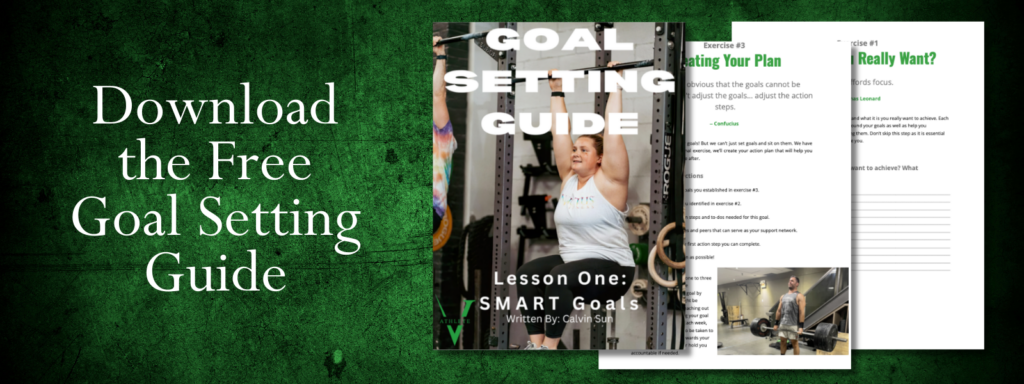
Is Motivation or Discipline More Successful in Reaching Goals?
Written by Justin Wright
What else can you do to increase your likelihood of success? If your goals follow SMART guidelines and you write them down in positive, powerful language, what other steps can you take? Understanding the difference between motivation and discipline, and in turn how to actually develop that discipline, will bring everything full circle.
Surrounding yourself with people who can empower you and bolster your resolve – a powerful social network – is critical for success when pursuing your goals. One thing you must understand, however, is that your support network cannot do your work for you! It is important to have the help and guidance that you need, but you must look internally to develop your drive. This is where motivation is often misunderstood.
Why is discipline more successful than motivation?
Motivation is a temporary phenomenon. Motivation will fail you, so do not rely on it for long. Develop discipline by defining your daily task list as it relates to your long-term goals. These micro-goals will keep you honest and provide a valuable means for measuring your progress each day. Whether you did what you needed to do is a simple matter of asking yourself the following question: “did I finish my list today or not?” If the answer is no, find ways to overcome the hurdle of bad habits and use inertia to build and sustain positive habits moving forward. Lean on your support network when times get tough, but realize that only you can do the work necessary for achieving your goals!
Think about the last time you started a new job, hobby, book, project, etc. You were probably extremely excited to start, but what happens one, two, or three weeks in? Motivation gets the ball rolling, and it allows you to dive head-first into a new project with immense amounts of energy. The problem is that this initial motivation is not enough to keep you going when you inevitably hit some sort of obstacle.
New Year’s Resolutions
New Year’s Resolutions are an excellent example of motivation at work. Local gyms are flooded with new members as people decide that this will be the year they finally get back in shape. After two weeks, the numbers of these people remaining are slim. Part of this is because they most likely did not use the SMART system to define concrete, tangible goals in the first place. A more likely reason for these resolutions ultimately failing is lack of discipline. When motivation runs out, discipline is the only thing that keeps the train rolling. How then can you cultivate discipline to ensure forward progress when those around you choose to give up?
What is Discipline?
Discipline can be defined as “the ability to do what you should be doing when the alternatives seem more enjoyable.” Discipline is the ability to make the tough choices, to sacrifice in the short-term, in order to reap long-term rewards. Even short-term goals take some time to come to fruition; discipline, in the simplest sense, is the ability to stay the course and make consistent progress towards those goals.
Discipline vs Habit
Discipline and habit are very closely related. The problem with habits is that they can be both positive and negative. There are plenty of bad habits, including addiction, laziness, and other self-destructive behaviors. Habits, both good and bad, take time to develop. Discipline is required to build good habits; the ability to repeatedly do what you need to be doing, over time, will help cultivate these habits and lead to long-term success with your goals.
The term inertia is defined as “a property of matter by which it continues in its existing state of rest or uniform motion in a straight line unless that state is changed by an external force.” Human inertia is a powerful concept with regards to forming habits, developing discipline, and accomplishing goals. You will maintain your existing state unless that state is altered; forming good habits is a way to ensure that your existing state is leading you closer towards accomplishing your goals.
The good news is, if you currently do not have good habits, you can alter your existing state by developing discipline. How then, can you develop discipline and maintain a positive state?
How to Cultivate Discipline
When working on goal-setting, the most important part of the process is to define your daily task list. This list is referred to in some contexts as a series of “micro-goals” that are directly related to your larger goals. These are things that you do not simply accomplish once and check off. Your daily task list, as you can imagine, is a series of things you must do every single day in order to succeed in accomplishing your bigger goals.
To use the previous example, if your goal is to lose 10 pounds in the next 3 months then there are a series of things you must do every day in order to be successful. You must ensure that you have healthy food prepared or available to you each day. You must consume enough water on a daily basis to preserve normal bodily functions. You must get adequate sleep each night so your body and mind are ready to tackle the next day. You must exercise regularly in order to keep your activity level high enough to sustain weight loss. If you slip up on one, or many, of these things then your likelihood of success is greatly diminished.
Inertia is Your Ally toward Discipline
When it comes to developing discipline, your daily task list may be a nuisance at first and you may find that you have a great deal of difficulty completing it. As you continue to chip away at these tasks, you will find that it becomes easier to do so. Remember, inertia is your ally once you have started to change your default state. As you continue to complete your daily tasks, you will, in turn, develop good habits that lead to other positive life changes. Positivity breeds positivity; the more you are able to stay disciplined and do these beneficial things, the more likely you are to succeed in the future when it comes to other goals that you set for yourself.
Need help mapping out your goals? You can start by downloading our FREE Goal Setting Workbook! Please reach out to one of our coaches if you need help from there!

I love your article about the importance of motivation and discipline. I realized that these qualities are equally important in academic education. I am sure that staying motivated is vital for effective studying and working on the endless tasks. In case where motivation wanes, seeking assistance from professional writers is a great option. Recently, I found review of Edubirdie at https://www.aresearchguide.com/edubirdie-review.html and now I am considering hiring writer as it will allow me to overcome obstacles and complete my assignments with the necessary dedication and focus.
Yeah